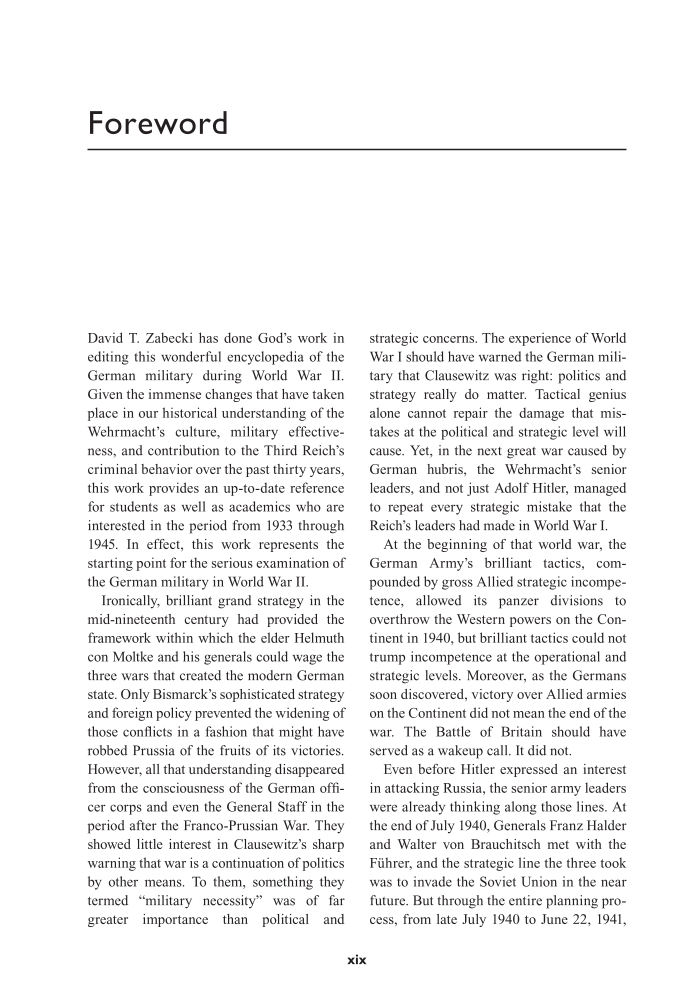xix strategic concerns. The experience of World War I should have warned the German mili- tary that Clausewitz was right: politics and strategy really do matter. Tactical genius alone cannot repair the damage that mis- takes at the political and strategic level will cause. Yet, in the next great war caused by German hubris, the Wehrmacht’s senior leaders, and not just Adolf Hitler, managed to repeat every strategic mistake that the Reich’s leaders had made in World War I. At the beginning of that world war, the German Army’s brilliant tactics, com- pounded by gross Allied strategic incompe- tence, allowed its panzer divisions to overthrow the Western powers on the Con- tinent in 1940, but brilliant tactics could not trump incompetence at the operational and strategic levels. Moreover, as the Germans soon discovered, victory over Allied armies on the Continent did not mean the end of the war. The Battle of Britain should have served as a wakeup call. It did not. Even before Hitler expressed an interest in attacking Russia, the senior army leaders were already thinking along those lines. At the end of July 1940, Generals Franz Halder and Walter von Brauchitsch met with the Führer, and the strategic line the three took was to invade the Soviet Union in the near future. But through the entire planning pro- cess, from late July 1940 to June 22, 1941, David T. Zabecki has done God’s work in editing this wonderful encyclopedia of the German military during World War II. Given the immense changes that have taken place in our historical understanding of the Wehrmacht’s culture, military effective- ness, and contribution to the Third Reich’s criminal behavior over the past thirty years, this work provides an up-to-date reference for students as well as academics who are interested in the period from 1933 through 1945. In effect, this work represents the starting point for the serious examination of the German military in World War II. Ironically, brilliant grand strategy in the mid-nineteenth century had provided the framework within which the elder Helmuth con Moltke and his generals could wage the three wars that created the modern German state. Only Bismarck’s sophisticated strategy and foreign policy prevented the widening of those conflicts in a fashion that might have robbed Prussia of the fruits of its victories. However, all that understanding disappeared from the consciousness of the German offi- cer corps and even the General Staff in the period after the Franco-Prussian War. They showed little interest in Clausewitz’s sharp warning that war is a continuation of politics by other means. To them, something they termed “military necessity” was of far greater importance than political and Foreword
Document Details My Account Print multiple pages
Print
You have printed 0 times in the last 24 hours.
Your print count will reset on at .
You may print 0 more time(s) before then.
You may print a maximum of 0 pages at a time.































































































































































































































































































































































































































































